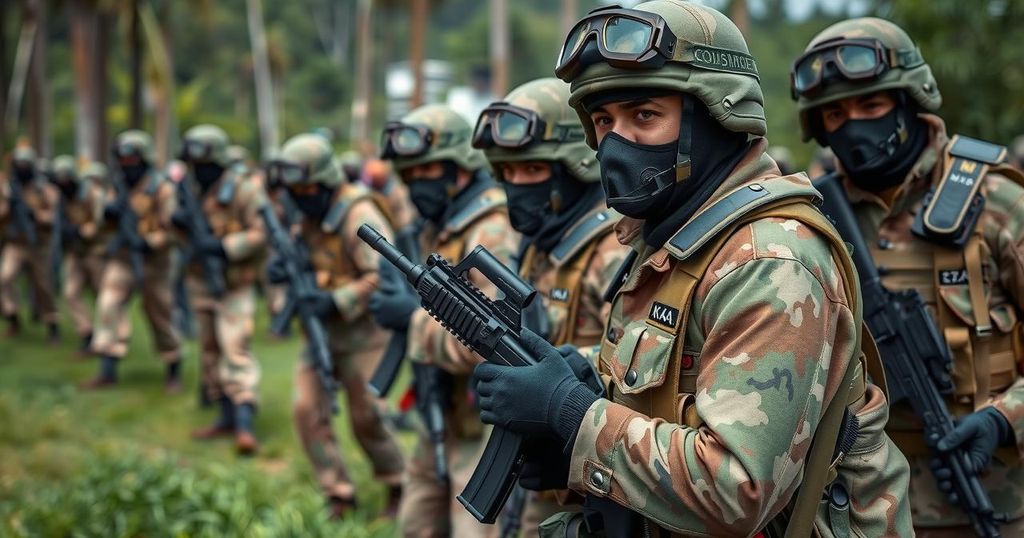The DRC is combating the M23 rebel group with the support of foreign fighters, including Colonel Romuald from the Bulgarian firm Agemira and the French Foreign Legion-affiliated company RALF. Despite their advisory and defensive roles, the conflict persists, driven by external influences and challenges within the theater of operations, while peace remains elusive amid diplomatic setbacks.
The Democratic Republic of Congo (DRC) is receiving support from foreign fighters in its ongoing conflict with the M23 rebel group. Notably, retired French paratrooper Colonel Romuald leads the Bulgarian security firm Agemira, which offers tactical guidance to Congolese forces engaging with M23. Agemira is responsible for the maintenance of aircraft and drones, and also facilitates arms transactions. Concurrently, another private military company, RALF, composed chiefly of veterans from the French Foreign Legion, is stationed in the DRC, actively protecting the strategic cities of Goma and Sake.
Despite these efforts, the conflict remains severe, with allegations of Rwandan government support for the M23 forces, as well as accusations of exploitation of the DRC’s mineral resources. The M23 rebels exhibit significant technical advantages, further complicating the situation, compounded by reports of delayed payment to foreign mercenaries. However, unlike some controversial mercenary groups, both Agemira and RALF emphasize advisory roles and defensive responsibilities, thereby mitigating concerns surrounding human rights violations. Nonetheless, resolutions remain distant as diplomatic efforts continue to falter.
The ongoing conflict in the DRC has historical roots tied to ethnic tensions and power struggles over resources. The M23 rebel group has taken advantage of the instability, often receiving alleged support from neighboring Rwanda, which complicates the conflict further. The involvement of foreign fighters, particularly from private military companies like Agemira and RALF, marks a shift in international engagement strategies, focusing on security advice and operations as opposed to interventionist approaches. These developments reflect broader geopolitical dynamics involving resource management and regional stability within Central Africa.
In summary, the DRC’s engagement of foreign fighters, particularly through companies like Agemira and RALF, demonstrates a strategic approach to counter the M23 insurgency. This dynamic, influenced by external support and internal conflicts, highlights ongoing challenges that complicate the restoration of peace and stability in the region. While these foreign entities provide essential military support, the DRC still faces profound issues involving technical mismatches in combat capabilities and broader geopolitical implications.
Original Source: www.africa.com






